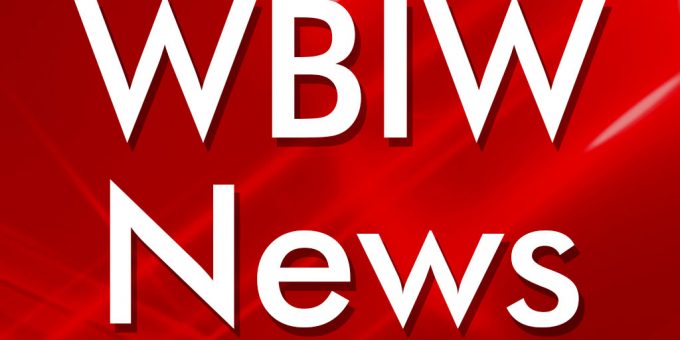
(UNDATED) – On Thursday, Indiana Farm Bureau celebrates successful advocacy efforts toward passing legislation that positively impacts farmers, agribusiness professionals, and rural communities. At the close of the 2019 session of the General Assembly, several of INFB’s priority positions were passed into law. We thank the members of the Indiana General Assembly for their continued support of solutions to challenges that farmers and rural residents face.
The organization’s goal of reducing extraterritorial jurisdiction was achieved in Senate Enrolled Act 535. This bill addresses the increasing trend of municipalities using powers to restrict activities outside of their borders and removes the ability of a municipality to use eminent domain outside of its jurisdiction unless specifically authorized by statute. INFB’s position sought a solution for this issue of regulation without representation.

Lawrence County speaking with Rep. Davisson at the Statehouse.
“In some instances, citizens in rural communities have had to adhere to regulations from both the county and the municipality, and those regulations often conflict with one another,” said Katrina Hall, INFB’s director of public policy. “Those individuals who live outside of a municipality’s jurisdiction do not get to vote for the officials making those regulatory decisions within the municipal government. SEA 535 removes that additional layer of regulation and rectifies these overreaches of power.”
Another INFB priority during this session was to address the Kankakee and Yellow rivers, which flooded in February of 2018 causing significant damage to homes, roads, and farmland. House Enrolled Act 1270 replaces the 24-member Kankakee River Basin Commission with nine voting members. The commission has been given the authority to acquire land for the construction of levees and flood easements, remove trees, stabilize banks, remove sediment, and a host of other tactics to reduce the risk of flooding in the future. The anticipated cost of the work based on preliminary plans is $120 million.
“With each significant rain event, the flooding in the Kankakee River Basin has escalated,” said Justin Schneider, INFB’s director of state government relations. “The funding, which is going to be secured from assessments for all properties in the basin, appropriations from the state and hopefully federal dollars, will be used to address the many issues with the river. We anticipate that HEA 1270 will be used as a model for other river basins in the state if they experience recurring flooding.”
Farm Bureau members advocated for many budget items in the 2019 session, and those initiatives were successful as well. House Enrolled Act 1001 includes an appropriation of funds for the Kankakee River, an investment of $763 million for K-12 education, bonding authority of $73 million for Purdue University’s Veterinary Teaching Hospital and debt-service payments to allow the Indiana State Fair to complete the renovation of the Fall Creek Pavilion/Swine Barn. INFB also supported House Enrolled Act 1002, which is a workforce education bill that includes several careers and technical education (CTE) initiatives and modernizes the CTE funding formula where agriculture classes are funded.
Other key bills which were pushed by INFB include:
- HEA 1427 – Requiring annexation remonstrance waivers that are more than 15 years old to be voided and setting specific requirements for recording. The bill also specifies how personal property equipment acquired through a like-kind exchange should be assessed, which gives farmers and other business owners clarity and consistency about personal property tax assessments.
- SEA 460 – Creating a new grant program for the distribution of money for broadband projects in rural areas.
- SEA 516 – Providing authority for the Office of the State Seed Commissioner to seek federal approval of a hemp production licensing program.
- SEA 565 – Restoring the state income tax treatment of a like-kind exchange when old equipment is traded for new equipment. This was done to adjust the state tax code following the Tax Cuts and Jobs Act of 2017 and the changes made to Section 1031 procedures at the federal level.
“Indiana Farm Bureau was successful in advocating for legislation in the 2019 session that improved agriculture and rural Indiana, and that would not have been possible without our members,” said Hall. “They made sure their voices were heard by visiting the Statehouse nearly every day of the session, communicating with legislators at third house meetings, and by connecting with their elected officials by phone and email. They were able to share how the decisions made in the state’s capital impact their farms, businesses, and communities.”
About Indiana Farm Bureau: 2019 marks the 100th anniversary of Indiana Farm Bureau (INFB). Since 1919, it has protected the livelihood, land, equipment, animals, and crops of Hoosier farmers and is the state’s largest general farm organization. As a farmer’s strongest advocate, INFB works diligently to ensure a farmer’s right to farm, because agriculture is so vital to Indiana’s economy. Learn more at INFB.org



